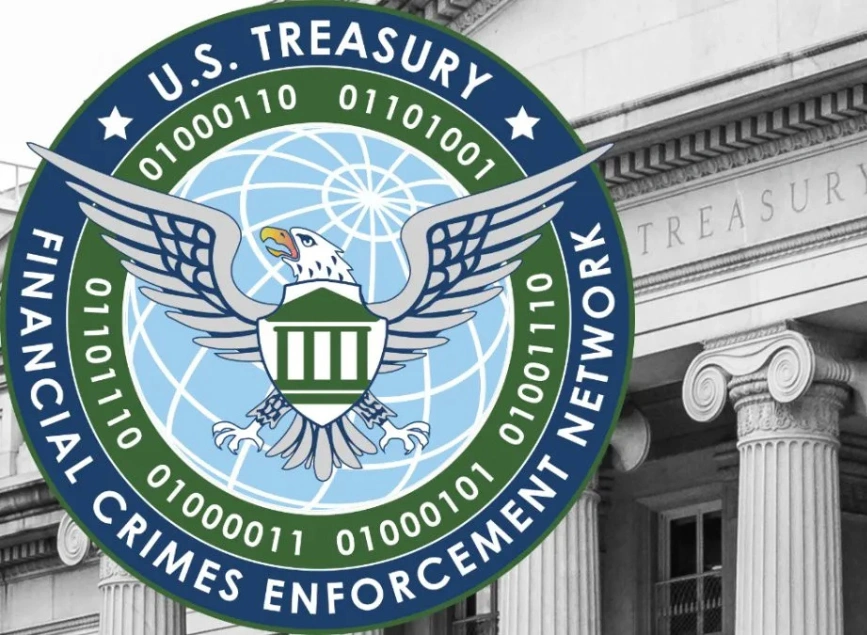
Secure Transactions Under FinCEN’s Watchful Eye
Estimated reading time: 7 minutes
Table of contents
As the world becomes more reliant on digital financial transactions, the security and integrity of those transactions are under constant scrutiny. With the increasing sophistication of cybercriminals and the ease of global money movement, financial systems face significant challenges in preventing money laundering, fraud, and terrorist financing. Central to addressing these challenges is the Financial Crimes Enforcement Network (FinCEN), a bureau of the U.S. Department of the Treasury. FinCEN is responsible for enforcing regulatory frameworks designed to enhance transaction security and prevent the misuse of financial systems for illegal activities. In this article, we will explore FinCEN’s role in securing transactions, its Supervision, and the impact these measures have on the financial sector and beyond.
Overview of FinCEN’s Mission and Mandate
FinCEN was established with the primary goal of safeguarding the financial system against illicit activities, such as money laundering, terrorist financing, and other financial crimes. It’s mandate is defined by the Bank Secrecy Act (BSA), which requires financial institutions to assist U.S. government agencies in detecting and preventing financial crime. FinCEN’s Supervision apply not only to traditional financial institutions such as banks but also to a wide array of non-bank financial entities, including money services businesses (MSBs), cryptocurrency exchanges, and fintech companies.

The core of FinCEN’s mission is twofold: ensuring transparency in financial transactions and empowering law enforcement agencies with actionable intelligence to investigate and combat financial crime. Through a combination of regulatory requirements and the collection of financial data, FinCEN plays a crucial role in monitoring the flow of money across the financial system, both domestically and internationally.
Key Supervision Frameworks Enforced by FinCEN
FinCEN operates under several key Supervision frameworks that are essential for enhancing the security of financial transactions. These frameworks establish strict requirements for financial institutions to monitor, report, and safeguard against suspicious or unlawful activities.
Read More: Complete Guide to Otet Trading Accounts
The Bank Secrecy Act (BSA)
At the heart of FinCEN’s Supervision oversight is the Bank Secrecy Act (BSA). Enacted in 1970, the BSA requires financial institutions to maintain records of cash purchases, file currency transaction reports (CTRs) for transactions over $10,000, and report suspicious activity. The BSA has been expanded and amended several times to address evolving threats, particularly in light of advancements in digital payments and international money transfers.
One of the most critical components of the BSA is the requirement for financial institutions to file Suspicious Activity Reports (SARs). SARs must be submitted when a transaction is suspected of involving illegal activity, such as money laundering, terrorist financing, or fraud. These reports provide law enforcement agencies with critical data that can help uncover complex financial networks and criminal enterprises. For businesses and consumers, SARs enhance security by ensuring that suspicious activities are flagged and investigated before they can cause harm.

Know Your Customer (KYC) is a key Supervision requirement under FinCEN’s jurisdiction that obligates financial institutions to verify the identity of their customers. KYC policies help ensure that financial institutions only conduct business with legitimate entities and individuals. This process typically involves collecting and verifying personal identification documents, proof of address, and other relevant information.
Know Your Customer (KYC) and Anti-Money Laundering (AML) Protocols
KYC protocols are integral to the broader Anti-Money Laundering (AML) framework, which aims to prevent illicit funds from entering the financial system. By enforcing these standards, FinCEN ensures that financial institutions are actively preventing money laundering and other financial crimes. Financial institutions are also required to implement customer due diligence (CDD) procedures, which involve assessing the risk associated with each customer and ensuring continuous monitoring of account activities.
While KYC and AML requirements can be cumbersome for both businesses and customers, they play an essential role in securing the integrity of financial transactions. They prevent bad actors from exploiting the financial system for illegal purposes and enhance overall trust in the financial network.
FinCEN’s Role in Regulating Cryptocurrencies and Virtual Assets
With the rise of decentralized digital currencies, such as Bitcoin and Ethereum, FinCEN has expanded its oversight to include cryptocurrency exchanges and other virtual asset service providers (VASPs). FinCEN’s cryptocurrency Supervision aim to close loopholes that criminals might exploit for money laundering or other illicit activities.

Cryptocurrency exchanges are now required to comply with the same AML and KYC Supervision as traditional financial institutions. They must monitor transactions for suspicious activity, file SARs, and ensure that they have adequate risk-based systems in place to detect illicit behavior. This oversight is particularly important in the context of cross-border transactions, where anonymity and jurisdictional complexities can make it difficult to trace funds.
FinCEN’s involvement in the cryptocurrency sector has helped to enhance transparency in what was once considered a highly opaque market. While decentralized by nature, cryptocurrencies now operate under stricter Supervision scrutiny, ensuring that their use in legitimate financial transactions is secure and less susceptible to misuse.
Enhancing Cross-Border Transaction Security
In today’s globalized economy, cross-border transactions are common and essential for trade, remittances, and international investment. However, these transactions also present unique risks, particularly when they involve jurisdictions with weaker Supervision frameworks. FinCEN works in collaboration with international bodies such as the Financial Action Task Force (FATF) and foreign governments to ensure that cross-border transactions are closely monitored for illegal activity.
To bolster security, FinCEN requires financial institutions to report international wire transfers that exceed $10,000 and to file SARs for any suspicious cross-border activities. This reporting helps prevent financial crimes such as trade-based money laundering (TBML), where illicit actors disguise illegal funds as legitimate trade transactions.

Through cooperation with global financial intelligence units (FIUs) and law enforcement agencies, FinCEN can trace illicit funds moving across borders and disrupt criminal networks. This international collaboration strengthens the overall security of the global financial system by identifying and addressing vulnerabilities in cross-border transactions.
The Role of Technology in FinCEN’s Security Measures
Technology plays a pivotal role in FinCEN’s ability to monitor and analyze vast amounts of financial data. Advanced data analytics, artificial intelligence (AI), and machine learning (ML) are being employed to detect patterns of suspicious activity that may otherwise go unnoticed. These tools allow FinCEN to process SARs and other financial reports more efficiently, providing real-time insights that can be used to prevent financial crimes.
For financial institutions, technology has also become an essential tool for complying with FinCEN’s Supervision. Many institutions now use sophisticated AML software to monitor transactions, flag suspicious activities, and ensure compliance with KYC requirements. These technologies are crucial for enhancing security in an increasingly complex and digital financial environment.
Conclusion
In the ever-evolving landscape of digital finance, the role of FinCEN in securing financial transactions is critical. By enforcing stringent Supervision frameworks such as the BSA, KYC, and AML protocols, FinCEN ensures that financial institutions remain vigilant against money laundering, fraud, and terrorist financing. Its oversight extends to emerging technologies such as cryptocurrencies, making sure that all players in the financial ecosystem adhere to high security standards.
At Otet Brokerage, we prioritize our customers’ privacy and peace of mind by adhering to FinCEN’s stringent supervision, including KYC, AML, and the Bank Secrecy Act. These measures ensure that all transactions are secure and transparent, protecting clients from fraud, money laundering, and other financial crimes. By implementing these robust compliance frameworks, Otet Brokerage provides a safe, reliable, and legally sound environment for every financial transaction, giving our customers the confidence that their personal information and investments are protected at the highest level.
Share
Hot topics

The best indicator for short term trading
When it comes to short-term trading, everything happens quickly. Movement can take place over a matter of minutes; momentum can build and fade quickly; and traders often have to make...
Read more




Submit comment
Your email address will not be published. Required fields are marked *